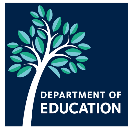The course aims to produce high quality teachers of the sciences across the 11-19 age range who will not only become competent teachers but will quickly become innovative leaders in their field.

The teaching of the sciences in schools is normally organised within a single Science department or faculty to which teachers from the different sciences contribute their respective expertise Such a structure is reflected in the Oxford Department which, while actively recruiting for trainee teachers of the separate sciences – biology, chemistry and physics – works as a co-ordinated team of scientists.
The course aims to produce high quality teachers of the sciences across the 11-19 age range who will not only become competent teachers but will quickly become innovative leaders in their field.
Interns will gain expertise in the different strategies for teaching science, and will get insights into the way that pupils learn across the whole range of attainments, aptitudes and pupil differences.
Interns will learn how to turn their own subject knowledge into a form that can be appreciated by pupils and will think critically about the aims and practicalities of teaching science in schools.
To attain these goals, interns work with each other, the University tutors and their mentors in schools as adult learners, motivated to take responsibility for their own learning.
The learning is structured through workshops, seminars, discussions, focussed assignments, school-based activities and sympathetic, expert, supervision and support. There are opportunities to prepare science lessons, in particular, by trying out practical work both here in the Department as well as in school.
Between them the six science tutors cover such subjects as biology, chemistry, physics, earth and environmental sciences. All have extensive experience of teaching and are involved in curriculum developments and research in science education at national and international level.
Rather than attempt to train all interns to teach in a particular way, we aim to build on your existing strengths – as good scientists and as mature, autonomous, motivated personalities – to help you teach in the way most suited to you and your school students.
Aims Of The Course
To develop as a professional
To explore your pre-conceptions about science and teaching science, and draw on your teaching experiences in a positive and reflective way
To have opportunities to use research and academic study to inform your thinking and practice
learn how you can plan lessons which take account of how students learn science, so that you can develop their scientific understanding and investigative skills
To organise and manage school science lessons which are safe and secure learning environments
To contribute to students’ understanding of science in society, citizenship and development of literacy and mathematical skills
About Us
Oxford has been making a major contribution to the field of education for over 100 years. Today, the Department of Education has a world-class reputation for research, for teacher education and for its Masters and doctoral programmes. Our aim is to continue to be a world-leader in cross-disciplinary education research that is closely connected with policy and practice.
Director's Welcome
Welcome to the Department of Education, University of Oxford!
Our department is an intellectually stimulating and inclusive environment in which to learn and teach. Our academics and students are internationally renowned for their research which encompasses early years, primary and secondary levels of formal schooling, higher education, and into the workplace.
The range of topics we study includes key themes such as the impact of socioeconomic status, educational effectiveness, parental engagement, being in care, multilingualism, digital education and ethics, assessment, vocational learning, internationalisation of education, to name just a few.
We are at the forefront of the research agenda across a wide range of educational disciplines including English, geography, history, foreign languages, mathematics, medicine, religious education, and science. We offer a range of rigorous academic programmes in the vanguard of both research and professional practice.
Our work contributes to all phases of public education in the UK and beyond. Our distinguished academics and students themselves come from a range of international contexts and disciplines, many of whom have significant roles in advising governments, Ministers, and important national and international organisations.
All the work we do is based upon our deep commitment to develop the most rigorous forms of evidence from which we can expand and enhance our shared understanding of key problems of educational relevance.
This evidence serves to advance educational theory and policy, and underpins effective educational practice. Our department is at the nexus of the knowledge economy and is dedicated to excellence in all spheres of our work
© 2025 coursetakers.com All Rights Reserved. Terms and Conditions of use | Privacy Policy